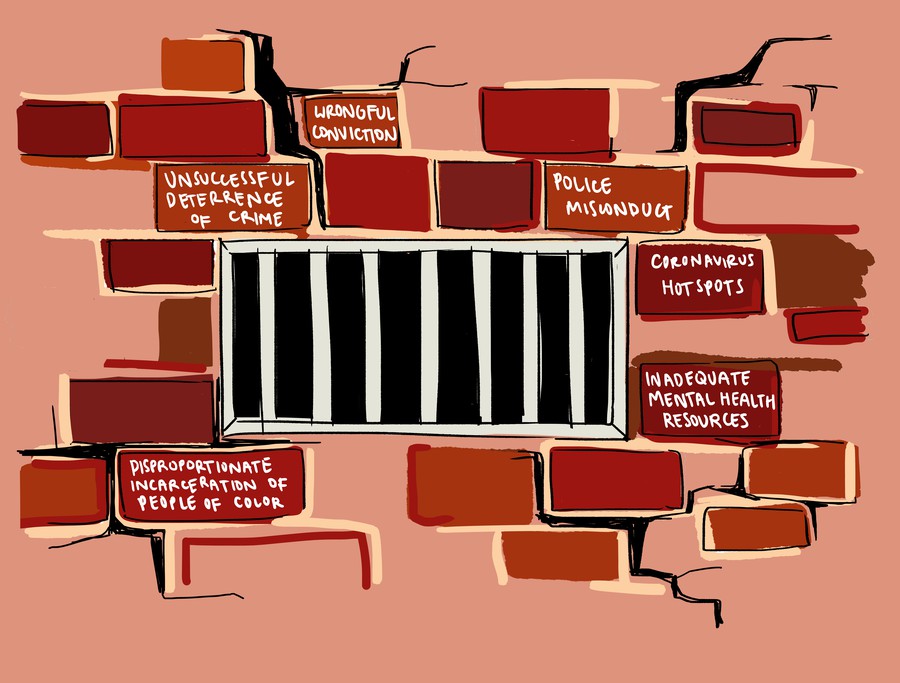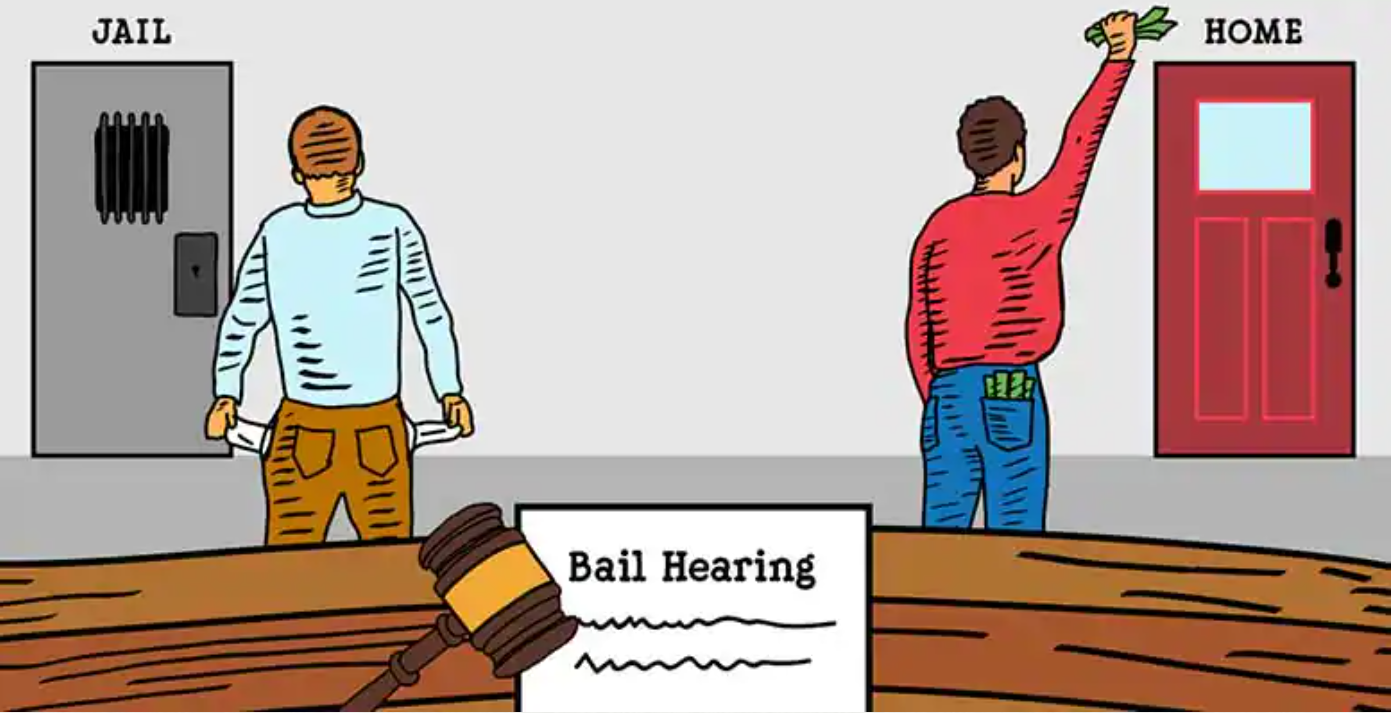According to The Color of Justice: Racial and Ethnic Disparity in State Prisons, more than 1.2 million people in The United States are held in prison. The United States is, by far, the leading country in amount of citizens incarcerated. Even after multiples states heavily reduced amounts of inmates. With this, Black Americans are nearly five times more likely to be incarcerated than white people. In Louisiana, more than half of the prison population is Black. While this is all just facts, it shows something in this system is seriously biased against Black Americans. The prison system is often biased against people of low income and/or Black Americans.

The No Money Bail is a bill that prevents the use of Money Bail. Only a few states so far have restricted the money bail, including California, Illinois, New York, and a few more. Louisiana, however, is far from enabling the No Money Bail. The Money Bail is something that heavily contributes to the bias against people of low income and Black Americans. Many people sit in jail for years because they were unable to pay their bail. Someone could potentially sit in jail for months or years only for passing a stop sign without stopping all because they could not afford the bail. To further my research on the No Money Bail, I interviewed Ryan Cox, a criminal defense attorney, on his views on the No Money Bail. Cox spends his time trying to help people trying to help people beleive they have someone on their side. Often times, people of color or less wealthy people feel like they have no way of succeeding when trying to win in court. They begin to feel like everyone is against them. The money bails typically target people of less income and people of color because people of less income cannot pay the bail, and, in New Orleans, people of color are often accused of committing something they did not do. The New Orleans Parish Prison Reform Coalition, or NOPPCR, states that more than a third of people in jail are there because they were unable to pay bail, eight out of ten of them are black. When in jail, they often lose their jobs, giving them even less of a possibility of paying the bail. Cox mentions how many people will just plead guilty whether innocent or not, just so they can serve their time and go home. Once someone goes to prison, it is very difficult for them to get a job. They also lose their right to vote. One can possibly lose everything when they go to prison. One person walked out of prison with absolutely nothing but a twenty dollar gift card, it lasted him one meal. Some people willingly go to prison, just to get out of the loophole they were stuck in because of the money bail.

The man on the right was able to go straight home because he had the money to pay pail. On the other hand, the man on the left had to spend time in jail because he did not have the money to do otherwise.
Cox then explains how we, as a community, can collectively get rid of the Money Bail. He says that the city of New Orleans will be able to get rid of the money bail if the community as a whole writes, emails, and calls the state legislatures to end the money bail. He says to make it so that they feel they must change it just so they stop hearing about it. People who are cast with working out the social issues work on what their people care about, so make them aware. If the NOLA community continues to show them we care about this, they are bound to end the money bail.
Something else to think about is the new court case, Roe v. Wade. This is the first law that targets one community, women. Soon, a large portion of the prison populationg will not only be Black Americans, but also women. This leaves majority white men the right to vote. This country has always been very proud of the Freedom of Speech. If the only community left to vote is rich, white men, it eliminates Freedom of Speech. The rich, white men are the only ones left with their Freedom of Speech. If we get rid of the No Money Bail, it may not help much with the Roe V. Wade case, but it will help regain the country’s “Freedom of Speech”.
 NOLAbeings Multimedia artist Claire Bangser created NOLAbeings as a portrait-based story project that marries...
NOLAbeings Multimedia artist Claire Bangser created NOLAbeings as a portrait-based story project that marries...  Voodoo in New Orleans: Reviving history: New Orleans fortune telling This article takes a deep dive into the history of Voodoo in New Orleans, its hybridization with Catholicism, and its present-day place in the city's culture. The author visits fortune-tellers in the French Quarter, using their guidance as a tool for introspection rather than a deterministic predictor of the future. Through her experiences in New Orleans, the author feels a mystical connection to both the past and the future.
Voodoo in New Orleans: Reviving history: New Orleans fortune telling This article takes a deep dive into the history of Voodoo in New Orleans, its hybridization with Catholicism, and its present-day place in the city's culture. The author visits fortune-tellers in the French Quarter, using their guidance as a tool for introspection rather than a deterministic predictor of the future. Through her experiences in New Orleans, the author feels a mystical connection to both the past and the future. 